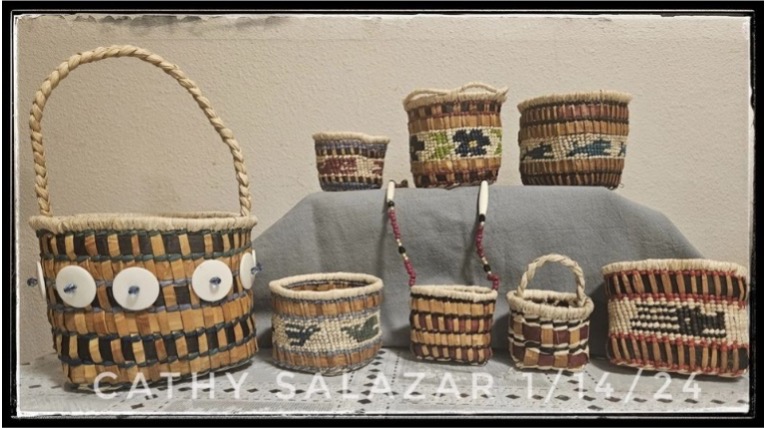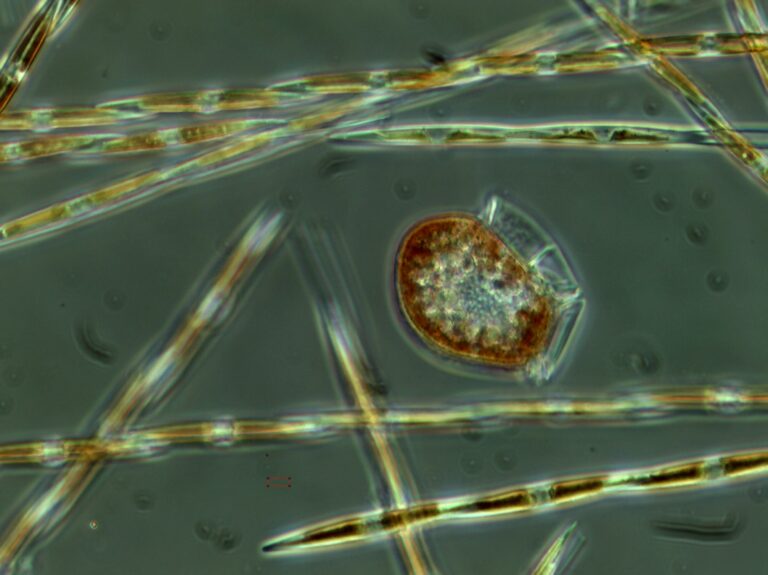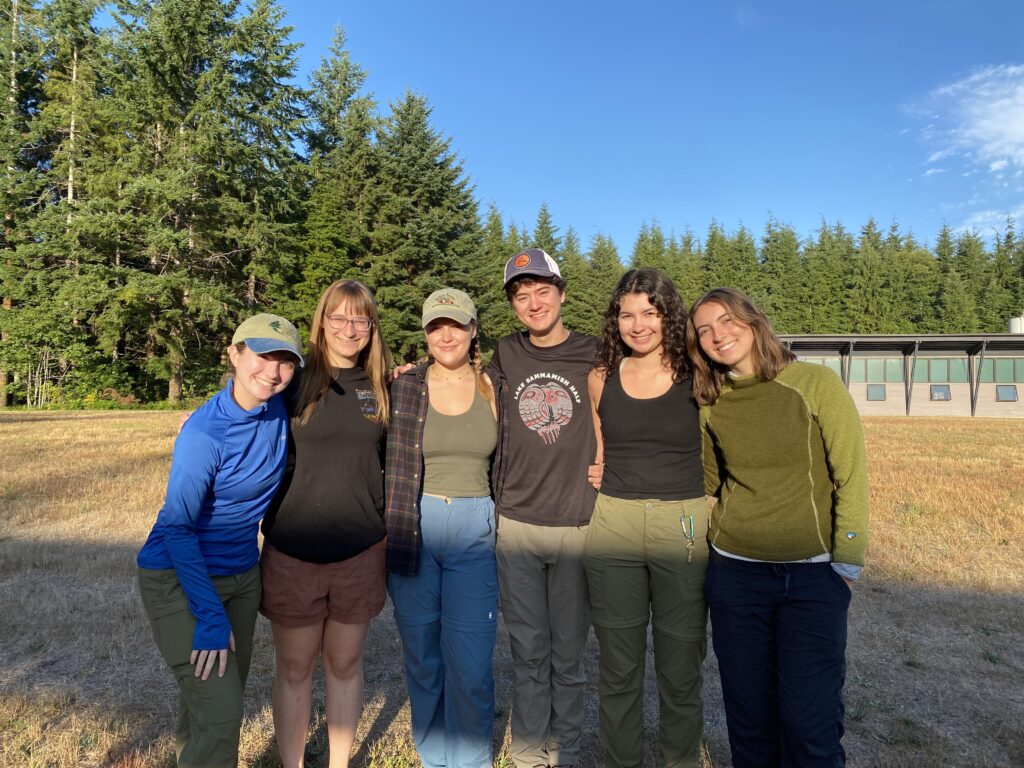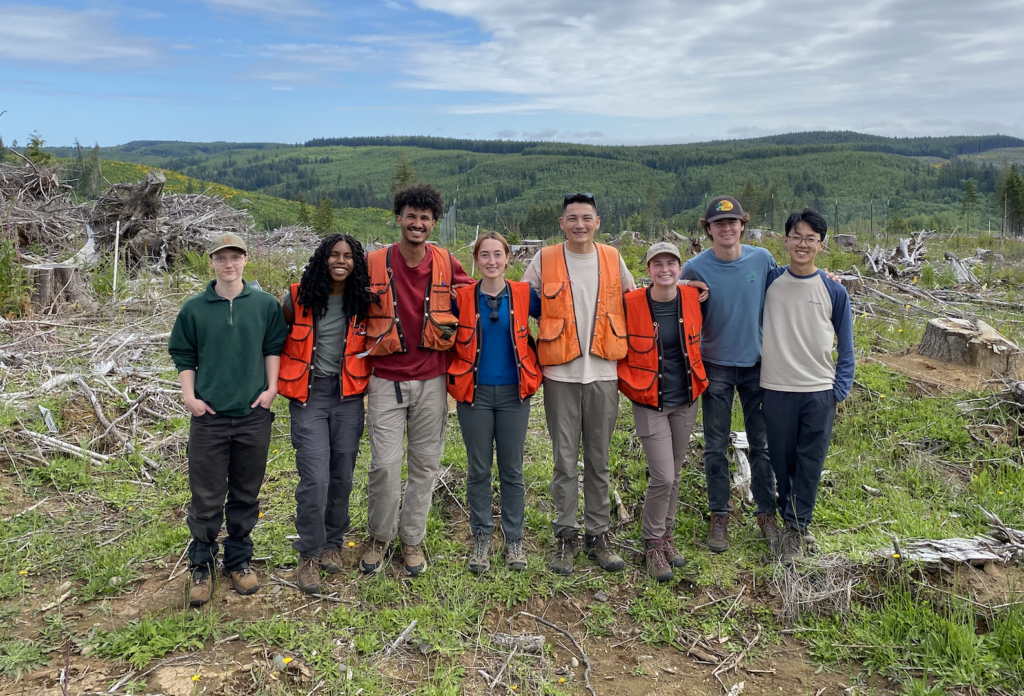The ROSMOND FAMILY EDUCATION FUND
The purpose of this endowment shall be to provide support for the Olympic Natural Resources Center located in Forks, Washington, which is currently managed by the School of Environmental and Forest Sciences, College of the Environment. It is the donor’s preference that distributions be used to support education and/or outreach programs at or under the direction of the center.
This endowment was originally created in 2007 to honor Frederick B. Rosmond. Fred was raised on a dairy farm and attended schools in Oakville and Montesano, Washington. He earned a degree in logging engineering from the University of Washington School of Forestry in 1939, and met his beloved wife Mary while attending the university.
In 1945, Fred and his family moved to Forks, Washington, where he and his two brothers, John and Robert, built and operated the Rosmond Brothers Lumber Company, until they sold the business in the early 1980s. They shipped high quality Western Red Cedar products to many parts of the world.
Fred received the Golden Award from the Society of American Foresters in 2000 to commemorate his 50th anniversary as a member of the Society. The Rosmond Family desires to memorialize Frederick Rosmond’ s dedication to the field of applied forestry science and education, and to perpetuate these values through this endowment.
The Rosmond Family also seeks to honor Fred’s nephew, Dr. Thomas E. Rosmond, who made substantial financial contributions to this endowment. He also supports the community of Forks, Washington through his generosity, and has made significant contributions to science throughout his career as a world renowned expert in numerical weather prediction. It is for these reasons the donor has chosen to rename this endowment the ROSMOND FAMILY EDUCATION FUND.
Tom received his B.S. and M.S. degrees in oceanography and his Ph.D. degree in atmospheric sciences, all from the University of Washington. Tom worked for the U.S. Navy for over 30 years. In 2007 he received the Fred E. Saalfeld Award from the Chief of Naval Research for Outstanding Lifetime Achievement in Science, awarded to a naval research scientist for extraordinary lifetime achievements that contributed substantially to the knowledge and capabilities of the Department of the Navy, Department of Defense, and the nation.
The Rosmond Evening Talks have returned to ONRC!
Did you miss a talk? Check out the latest presentations below.
Can the Ocean Solve Our Carbon Problem? A Survey of Marine Carbon Dioxide Removal Strategies
July 24, 2024
Presenter: Meg Chadsey from Washington Sea Grant
Synopsis: Evidence of climate change is all around us. Rising seas, forest fires and impacts to fisheries are just some of the effects coastal residents are experiencing. With these challenges feeling more urgent than ever, people are looking for new ways to tackle climate change that feel up to the scale of the problem. Many are looking to the ocean, which covers 2/3 of our planet, as a potential source of solutions to our carbon problem. From nature-based methods like kelp farming, to more engineered approaches like ocean alkalinity enhancement, there’s no shortage of ideas (and enthusiasm) for the suite of ocean-based strategies collectively known as marine carbon dioxide removal or ‘mCDR’. But how do we know what will work, and which would be a good fit for Washington’s outer coast? Most of these strategies are in very early stages of development, and many scientific questions remain. The public’s appetite for large-scale climate interventions is also uncertain. This talk will provide a high-level overview of the mCDR landscape, with an emphasis on approaches being explored in Pacific Northwest waters and consider what it might take for mCDR to succeed in our region.
Traditional Quileute Cedar Basket Weaving
April 25, 2024
Presenter: Cathy Salazar from the Quileute Tribe
Synopsis: The art and process of making cedar bark baskets for both practical and decorative purposes have evolved over centuries.
Cathy Salazar is enrolled in the Quileute Tribe. She has been weaving since 1997. Teachers have included Lillian Pullen, Norma Rodriguez, Sharon Pullen, Lela Mae Morganroth, Marian Schumack and Viola Riebe, although she has been influenced by many other weavers as well.
In this Evening Talk, she will briefly go over historic uses of cedar bark as it pertains to basket weaving, the process and timing of gathering red cedar in the spring, storage, and curing and preparing cedar to begin weaving baskets. Different styles, techniques and types of baskets will be presented along with many hands-on materials.
Cedar basket weaving is an important element of the Quileute Tribal culture and is an active, living and evolving traditional resource.

Protecting our Shellfish Harvest: A Deep Dive Into the Department of Health Marine Biotoxin Program
March 21, 2024
Presenter: Jerry Borchert from the Washington State Department of Health
Synopsis: Marine biotoxins are poisons that are produced by certain kinds of microscopic algae (a type of phytoplankton) that are naturally present in marine waters, normally in amounts too small to be harmful. However, a combination of warm temperatures, sunlight, and nutrient-rich waters can cause rapid plankton reproduction, or “blooms.” These blooms are commonly referred to as harmful algal blooms or “HABs” because of their potential to cause illness. Molluscan shellfish (shellfish with hinged shells such as oysters, clams, and mussels) are filter feeders and ingest any particles, both good and bad, that’s in the surrounding water. Algae is a food source for them, and HABs create a plentiful food supply. When shellfish eat toxin-producing algae, the toxin remains in their system; large amounts of algae means more toxin can concentrate in their tissue. Biotoxins don’t harm shellfish, but they can accumulate in shellfish to levels that can cause illness or death in humans and other mammals that eat them. This talk will cover how the Washington State Department of Health, Marine Biotoxin Program coordinates the collection of shellfish samples from the coast, coastal bays and Puget Sound for biotoxin testing, explain the different types of marine biotoxins in WA, biotoxin monitoring for Dungeness crab and provide resources for safe shellfish harvesting.

Toxic “red tides” of Alexandrium catenella: an emerging, climate-driven threat to subsistence communities and ecosystems in the Pacific Arctic
February 28, 2024
Presenter: Dr. Donald M. Anderson from the Woods Hole Oceanographic Institution
Synopsis: The waters of western and northern Alaska, including the Bering, Chukchi, and Beaufort seas, are changing due to climate-driven warming, leading to an elevated risk of Alexandrium catenella blooms and paralytic shellfish toxins (PSTs). PSTs are a recognized health concern in southeastern Alaska, but the distribution, dynamics and impacts of A. catenella blooms in the northern waters of the region are largely unknown. This talk synthesizes six years of observations and analyses (2018-2023).
2023 ONRC Summer Intern Talk
Hybrid ONRC Evening Talk
August 15, 2023
Presenters: Paisley Blume, Evan Gray, Nina Perry, Jovanna Talarico, Anna Thario
Synopsis: The 2023 ONRC intern crew presented an evening talk on their experience working and living on the Olympic Peninsula this summer. The crew worked on several research studies, including the ethnoforestry field trials, the long-term ecosystem productivity study, and the Type 3 Watershed Experiment. Check out the recording of their presentation to learn more!

Tsunami Preparedness
In-person ONRC Evening Talk
September 12, 2022
Presenter: Elyssa Tappero, Tsunami Program Coordinator, Washington Emergency Management Division
Synopsis: With thousands of residents living along the coast, along with millions visiting each year, a tsunami reaching the Washington coast would have serious impacts on communities and their wellbeing. In this presentation, Eyssa Tappero details how tsunamis work, what we could expect from this type of natural disaster, and ways we can prepare. Check out this great talk!
2022 ONRC Summer Intern Talk
Hybrid ONRC Evening Talk
August 16, 2022
Presenters: Delaney Skiles, Drew Blackwell, Josh Kim, Kyle Yasui, and Margaux Ranson.
Synopsis: The 2022 ONRC intern crew presented on their experience working on many long-term forest ecology and management projects on the Olympic Peninsula. The crew collected data on understory composition and seedling survival on the ethnoforestry field trials site in La Push, remeasured one treatment within the long-term ecosystem productivity study in Sappho, and worked on several monitoring projects on the T3 Watershed Experiment including creating tree and understory plots, collecting soil samples, and electrofishing. Check out their talk to hear more!

2021 ONRC Summer Intern Talk
Virtual ONRC Evening Talk
August 2021
Presenters: Elise Mclane, Evan Terry, Jessie Cox, Shawree Zhang, and Will Browne
Synopsis: The 2021 ONRC Interns present on their summer field season on the Olympic Peninsula. The crew worked on numerous projects, including collecting pre-treatment data on the Type 3 Watershed Experiment, monitoring the ethnoforestry field trials site, and remeasuring tree plots in the long-term ecosystem productivity study. Check out their presentation to learn more and watch their short video to see what they experienced in the field.
2020 ONRC Summer Intern Talk
Virtual ONRC Evening Talk
August 25, 2020
Through the trees and down the slopes to LTEP and T3 we go: A review of the ONRC 2020 field season
Presenters: 2020 ONRC Interns: Sarah Crumrine, Ally Kruper, Connor Lady
Synopsis: A review of the fieldwork conducted this summer by the ONRC interns and an update on the ongoing Sappho LTEP Early Seral Plots, the brand new Ethnoforesty pilot project near La Push, and the recent T3 riparian watershed management project in the OESF.